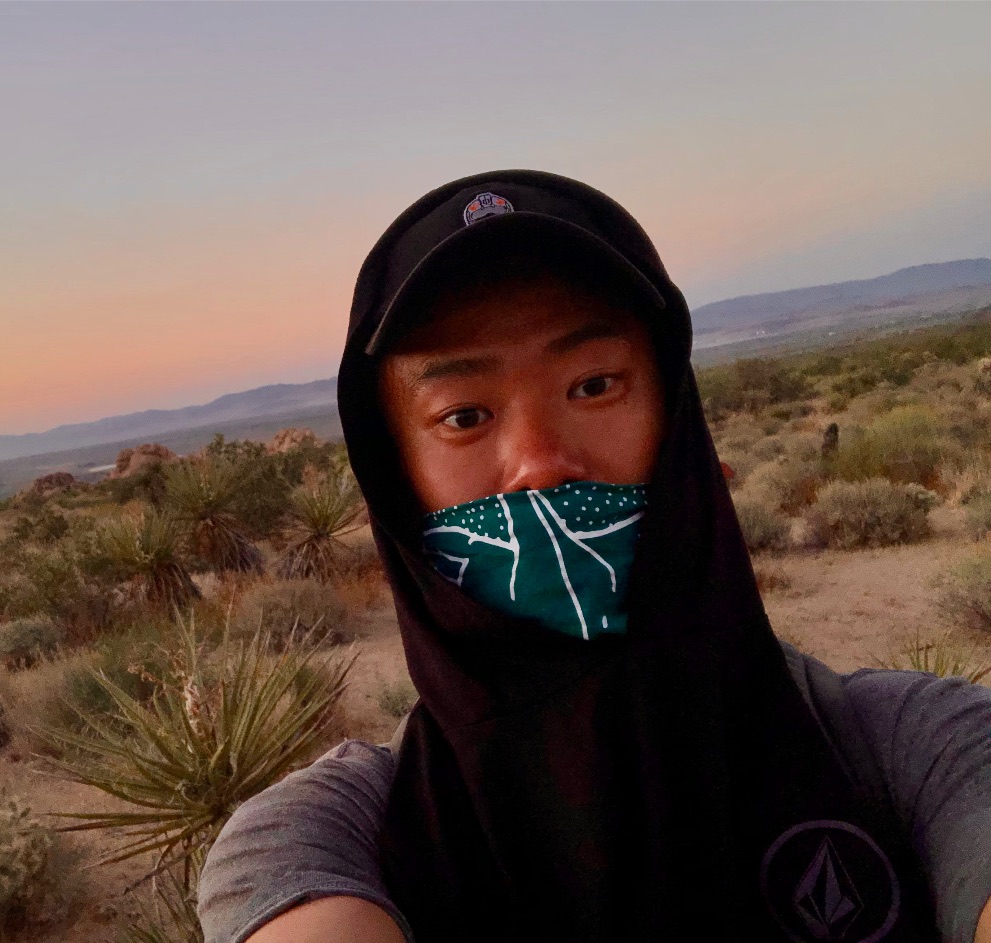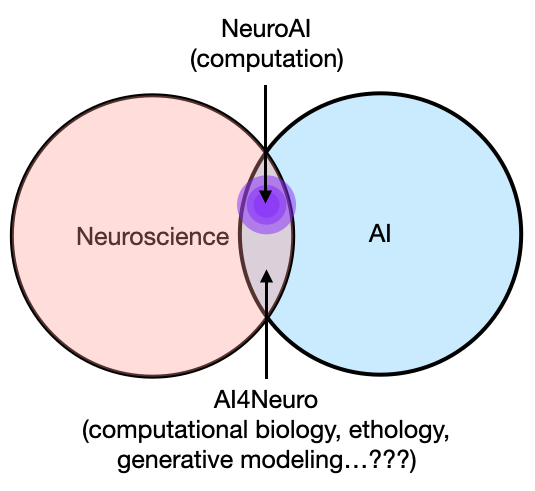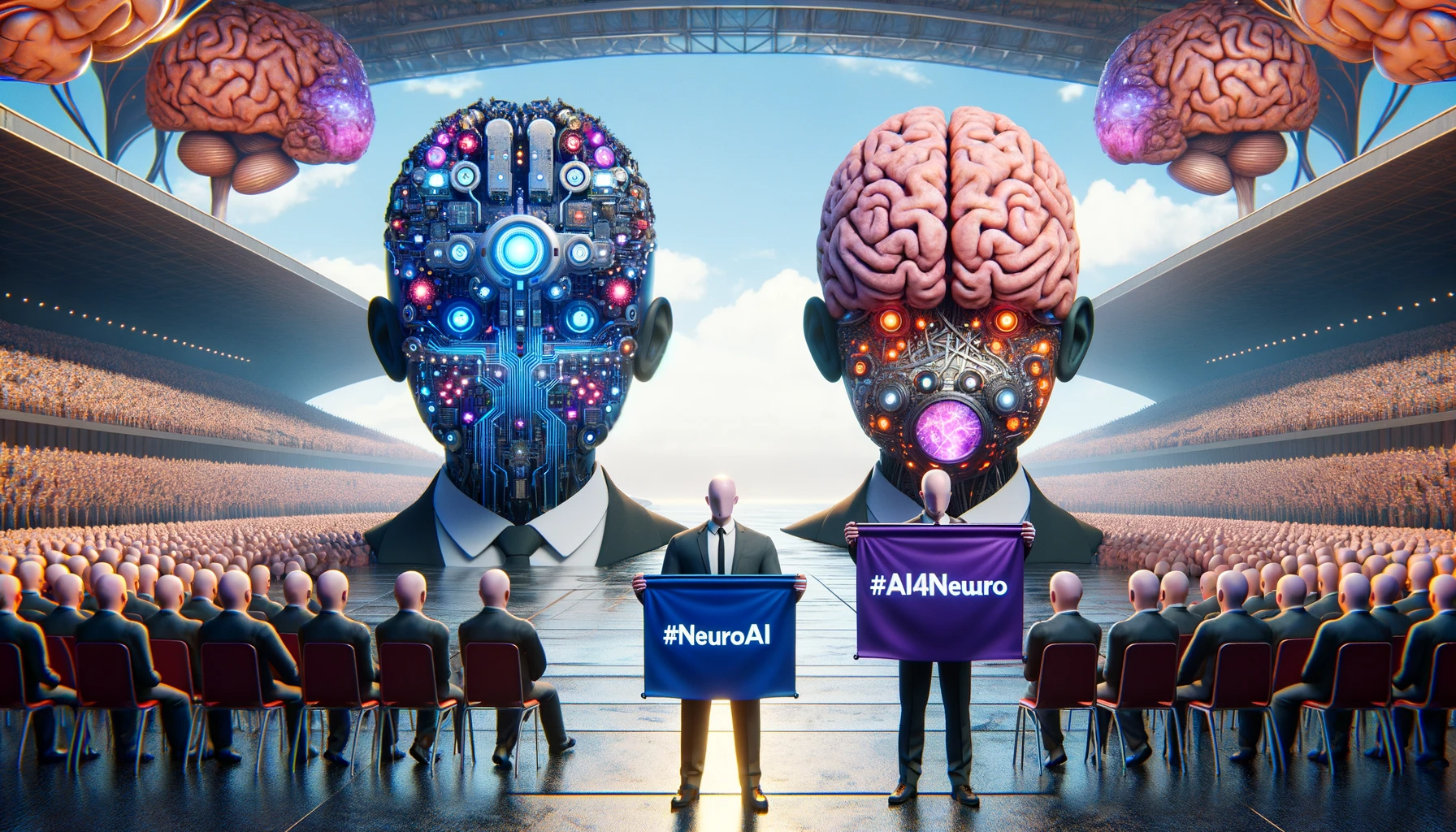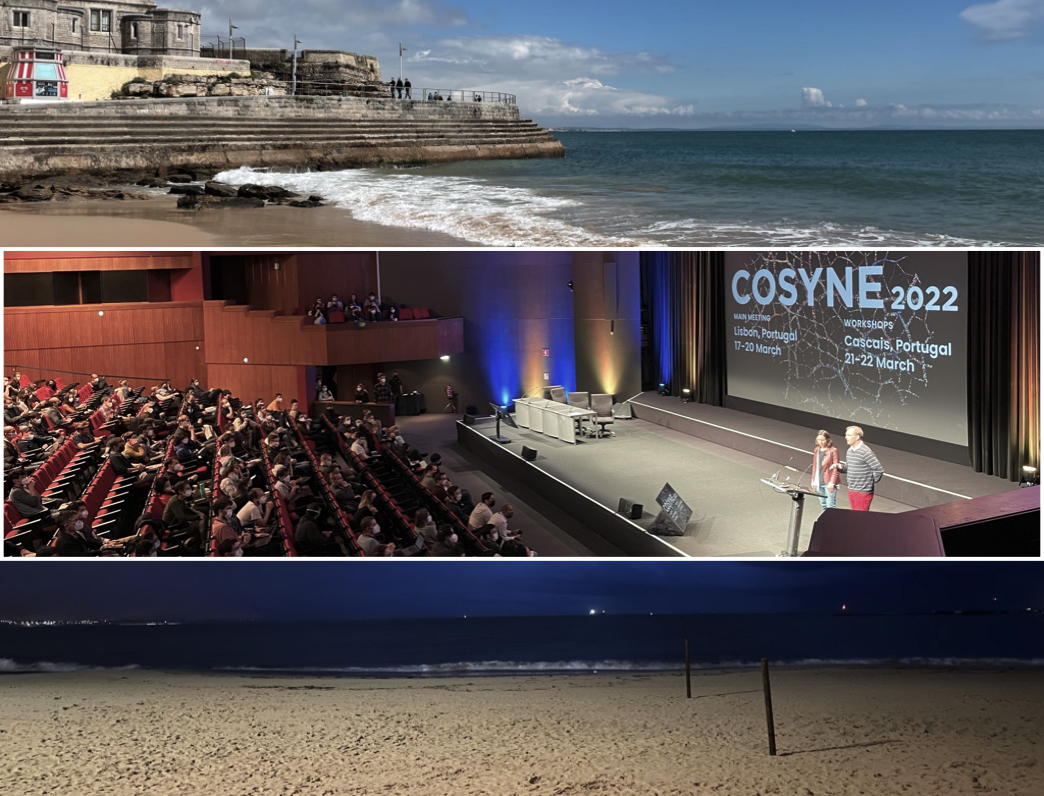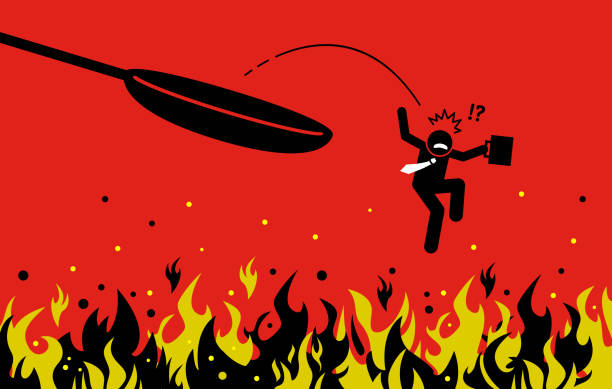Late into the evening of March 9th, I bought my plane ticket to Munich for March 30th, for a 3-months research visit. I was going to learn some dope Bayesian inference tools in the Macke lab for modeling neural circuits, and also to take a breather from my own work before I defended my PhD at the end of the summer. 3 weeks before I was to fly out is probably the earliest I’ve gotten a plane ticket in recent memory. Well, serves me right to try to do things early.
This is not how I thought it would end, not at all. No, I’m not talking about the end of the world, not yet at least. I’m talking about the end of my PhD.
The next morning, March 10th, I wake up to the news that 1) UCSD is set to move all classes online in Spring quarter and the last week of Winter quarter is all but cancelled, and 2) the entire country of Italy is now on state-declared lockdown. It’s March 19th today. These last 10 days in between have felt like two months, with bad news coming one after another, one drastic policy announcement after another. UCSD campus is now fully shut down, all sizeable gatherings (including PhD defenses) are to be conducted online, both the US and Europe are about to/ have already restricted travels for incoming non-citizens, and it’s somewhat unclear if I could even come back to San Diego if I were to go back home to Toronto. I went from having a flight and looking for flats to definitely not leaving to the world melting down, all in a span of 5 days, then spent the next 5 days depressed.
To be fair, I should have seen this coming, at least enough to not be lured by the ridiculously cheap plane ticket, because things were already serious across the world by early March. Even though that was fully my own stupidity and ignorance, I think it really serves to highlight how suddenly things evolved and then came to the forefront of my consciousness, as if my awareness of the situation itself also grew exponentially. I swear if I see another “exponential growth” plot on Twitter, I’d throw up exponentially and never plot anything in semi-log again.
So why am I writing this? Why am I occupying my consciousness (and yours) if I’m already filled to the brim with grim projections and never-ending bad news? Well, in part, it’s therapeutic for me, because I’ve thought so much about it and it feels weird to be writing about anything other than this situation at the moment, that I need this brain dump. I’ve seen a lot of numbers and forecasts on Twitter and through various news outlets over the last 10 days. Obsessively so. I’ve also seen some tweets and had some real life conversations about how it’s been tough for some people to deal with this climate of uncertainty, beyond a concern for those friends and family that are at higher risk. Those real-life feelings are discussed much less often, probably because they don’t fit nicely into a tweet, but it always makes me feel a little better to know that my crazy anxiety about the world isn’t just me being crazy. I usually don’t get too worked up over these kinds of things, though I can’t say I’ve lived through a bonafide pandemic in my 29 years of life. In any case, I figured I’d write about how shitty my last week has been, and some other scattered thoughts about the coronavirus here and there, so that maybe some of you will relate and find it cathartic as well. Do listen to the song at the end though, it’s topical.
TL;DR: if you’re having anxiety over some decision about where to be, or just life decisions in general in this time of extreme uncertainty, I’m with you. Some vague advice: consider your most important priorities and optimize for just a few of those, because things will move too quickly for the unimportant stuff. And get off of Twitter.
Doomsday diary
The weird thing is that not once in the last 10 days was I concerned about my own health during this pandemic. Literally zero. Maybe I should be since there were obviously some young and spry adults around my age who did unfortunately die from serious complications of the coronavirus. But for the most part, I have no co-morbidities and the statistics backed up my newfound sense of invincibility: were I to catch the virus, I’d probably get flu-like symptoms, stay home for two weeks in bed, and walk away with an immunity (don’t worry, I’m still practicing all the personal safety recommendations). You’d think this sense of invincibility would allow me to carry out my life unaltered, but it’s times like these that make you realize how embedded one is in this global infrastructure of people, things, and places, and I was just really affected by the logistics in a time of extreme uncertainty, while worrying about being a local and global transmission vector, and then dealing with a feeling of total lack of control over my own life.
I was so taken back by the progression of events last week that I started writing down all my thoughts and observations on March 10th, sort of like a joking-but-also-not diary of the apocalypse, so that if somebody 200 years later found this random dude’s recounting of how everything went down, maybe they’d make a movie about it. I won’t copy over the full thing, but for the first two days (March 9 & 10), it was more or less just me marveling at how suddenly responses ramped up in Europe and North America over maybe a 3-day span, how I knew about all of this since the beginning of January when news about lockdown in China broke out, and how I completely failed to take this seriously until it reached my front door. When I started writing these thoughts down, I was in such disbelief that I thought I had missed something in the global sequence of events, so I looked up coronavirus timelines (this one in the NY Times), and I guess, unsurprisingly, I had heard about all of them between Twitter and my morning news. Thinking back, it was kind of insane that I was simultaneously hearing about a state-mandated lockdown of some tens of major cities in China and also going about my own day as if nothing was happening in the world. I remember hearing about those stranded cruise ships that had coronavirus patients onboard, and thinking that must suck major balls to be locked in a place knowing that you’ll almost certainly get this superflu from someone, then immediately going on to joke with a friend that if everything was to go to shits in the world, buying Prada or P&G stocks was probably a good idea because people will always want handbags and shampoo. That was early February, barely a month ago.
Actually, I think my own shift in awareness of how grim the situation was preceded many of my friends’ in California, and certainly the US as a whole, by about a day or two, only because my own future was so intimately linked to not what will happen in the US, but what has happened in Germany. Those couple of days sucked, because it seemed like I had to make a quick decision about whether to delay my trip, especially as I was apartment hunting in Munich. It was this strange and paradoxical feeling of anxiety that there was simultaneously not enough information to make a decision, and that too much information was coming in too quickly to even make a decision because there’s no point deciding to go if there was no Germany left (that, fortunately, has not happened yet). These last two weeks of March were already going to be really stressful as I was trying to finish up a project before I left, arranging whatever personal things there was to arrange (leave of absence, taxes, my apartment, etc.), and figuring out my travel plans and living situation over there. So it was like this weird paralysis of trying to run two sprints at the same time, but in different directions. In hindsight, it’s kinda funny, and the rational thing would’ve been to just wait to see what happens because even though the ideal outcome would’ve still been for me to go, and I can just finish whatever I need to finish over there, it was also totally fine if I were to stay in California, as I am doing now. Situations like this really make you rethink what is essential and important (more on this later).
I’m writing this not just to tell you about my sad life (it’s really not that bad in hindsight), but because I know a lot of my friends working or studying abroad are facing this exact dilemma right now, between going back home to their families to weather this storm and staying put where they are so they can be close to their regular day-to-day community. It sucks, and I don’t really have any good advice as far as what the optimal thing to do is, other than that making and committing to a decision made me feel better emotionally if for nothing but to make the anxiety disappear. Also, I was kind of lucky, if you can call it that, that the decision was essentially made for me a few days later. In the grand scheme of things, unless things go full nuclear (which is always a possibility though still unlikely at this point), it probably doesn’t matter that much as long as there is food, water, shelter, and some community around you wherever you are. I guess if I knew the world was going to end tomorrow, I’d probably try to be around my family in Toronto, but short of that, I’m pretty fortunate to have people that care and have reached out to me from all over. Be around those people if you can, talk to them if you cannot.
Geeky enough, sprinkled in my ramping anxiety was this fascination about how things - the virus itself, information, people’s emotional reactions, and governments’ policy responses - propagated spatially and temporally from Asian to Europe to North America, with a noticeable lag. Obviously, had Italy and other European countries seen and learned from what happened in China and South Korea, an early intervention could have prevented much of the disaster that ensued, which inevitably resulted in a country/bloc-wide lockdown. The same is true for the US, and it really doesn’t seem like we’re willing to pull out the big guns until it’s necessary, but with such a long latency between infection and symptoms (& death), when it starts to look necessary, it’s already set to run its course. It’s like an autonomous dynamical system - societies I mean - and people will do what people do, no matter what continent you’re on, even though what is required now is learning what somebody just before you had failed to do, and do that. What’s required is to be different, and in this case, to do things just a little earlier than everyone else. But anecdotally it seems that we as humans also have this inherent limitation in how far forward we can forecast, both individually and as a collective, otherwise climate change would’ve been solved.
Somehow it feels like Rudy Gobert’s fault
My capacity to entertain these interesting oddities went straight out the window by the evening of March 10th, when it was announced that there would be a travel ban between Europe and the US. Even though I found out later that it was only a restriction for non-citizens to enter the US, it was pretty much a moot point because 1) I wouldn’t have been able to come back, however unlikely it is that it would still be a shitshow 3 months later, and 2) surely there would be a ban in the other direction soon enough (which the EU is currently discussing). Oh and on top of that, the same night, the NBA (and subsequently all major leagues) announced that the the season would be suspended indefinitely. That makes total sense, but somehow hearing about Rudy Gobert being a complete fucking idiot touching everything on the podium before or after he got sick was just the perfect shit icing on this turd cake. I don’t know why, but he being the first NBA player (and more or less the first American celebrity while actually being French) to have acquired and subsequently went on to give it to Donovan Mitchell is entirely unsurprising to me. My lab was concerned:
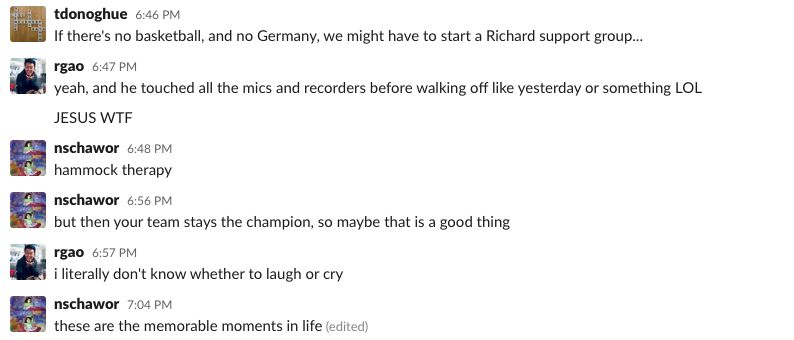
The memes though, those did brighten my day (all joking aside, obviously I hope the players go through a speedy recovery).
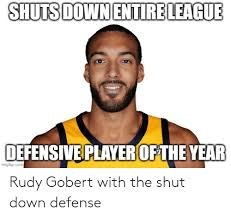
Anyway, this is what I wrote on the morning of March 11, it’s much more punchy than what I can summon up now so I will copy it over in full:
“We are literally in a global pandemic. Pretty neat. Also, US has (maybe) banned all travel from (and to?) Europe, so there goes my Germany trip. I hope they route me the travel grant money still. You know, I’ve sort of fantasized about a doomsday scenario like this many, many times now, like an apocalypse type of situation, where we’d basically have to hunt for our own food. But more realistically, I was thinking that it’s kind of funny how I’m in the middle of a personal rollercoaster, with the uncertainty of travels and what to come after my PhD, but now there’s this literal pandemic that’s throwing a wrench into things, to say the very least, so in the grand scheme of things, my own turbulent future doesn’t seem all that unstable now, at least compared to what could very well happen in the next 10 days. And all of THAT seems wholly unimportant compared to what it must feel like for a friend to be carrying, due sometime after she becomes unemployed and uninsured, with or without the coronavirus happening. That’s a whole new level of uncertainty. The kid could be born into a completely different world.”
And then, on the morning of March 12:
“It’s 10am and dark outside because of the rain. It’s my last day at the Writing Hub, the bagel meeting has taken on a darker tone, like a pre-apocalypse type of vibe. The hub has mandated remote consultations and the team doesn’t really know what to make of it. I feel like this is the moment that we - I mean the world - collectively acknowledged, not the impending doom, but the impending uncertainty. We don’t really know what’s going to happen anymore. It’s funny, because we never really know what will happen in life within any reasonable prediction horizon, but this feels like a whole different thing. I’ve always felt like I bumbled through life without much explicit planning or foresight, but now, even more so. Twitter is being updated with ever more drastic news by the minute.
I woke up feeling down. Bummed. Maybe it’s the grey weather, or maybe the complete lack of stability is getting to me, and that I want to be able to be with family or someone I can hold onto during this time to know that at least some things will be okay and stay the same. It may very well be the case that all of this will blow over just fine, I will go on my Germany trip and do the work I want to do, and come back and defend all the same. That’s probably the most likely scenario, all things considered, but we’ll have to go through a lot more ups and downs to get to that point. But there’s always the possibility that it will not happen, because I don’t have a place yet and people may be averse to renting out, especially to a foreign person. Plus it’s not beyond the realm of possibility for European countries to close their borders. Even if I do get there, we are told to work remotely as much as possible anyway, and certainly not to travel for leisure when it’s not necessary. So maybe not going is just as likely. I’m sure I will have an update soon enough. It’s so interesting that we have to deal with all these new issues that nobody has ever dealt with before, and somehow a lot of people have opinions about it, while everyone still needs to go to work and do their regular jobs. My paper felt like a huge deal a month ago. Not so much anymore.”
Apparently I was still entertaining going on the trip. What a silly man. Anyway, a few days later, it became clear that the wisest thing to do would be to at least delay the trip. From this point, which was Thursday, I basically couldn’t bring myself to do anything for the next 5 days, because…well, everything sucks.
And then finally, on glorious Pi-day, Saturday, March 14, where we were actually suppose to demo something at the Science Center (which obviously got cancelled):
“I feel like I need to timestamp these on the hour now because things are happening so quickly. It’s hilarious when I think about how last Thursday (Mar 5) that there was a small rally at UCSD for grad student striking for COLA. 10 days later, we’re basically all fucked. I mean this is totally unrelated but I just think it’s funny.
I’m starting to realize that my mental health is deteriorating much faster than what the physical threat of covid poses, and a HUGE part of it is just being plugged into Twitter constantly to monitor what’s going on, and the floating uncertainty of everything. I suppose this is how people feel at a more local scale as well, leading to panic buying of stuff to have some sense of security. In the near to short term, I need to figure out a plan for Germany, limit my Twitter usage, and be grateful that I’m still in California around friends and colleagues who have in one way or another expressed that my staying is a great thing, as well as concern for my travels, including Brad who’s looking for ways to pay me on such a short notice, and also the friends and my parents who are not around but are reaching out to ask about my plans and expressing concern, all that is great.
It’s also interesting that I think I’m affected a bit more than your average person, from the global consequence, because of the planned trip. Like, not only am I affected by the status of the US node in this graph, but also the Germany and Europe node, as well as the edge between those nodes pertaining to travel restrictions. I’m also really thankful to have these friends in Germany that update me on what’s going on over there, and can advise me on what to do. Spoke to Leo on the phone today, had a much needed and hilarious conversation during this gloomy time. So for now, just gonna try to be rational, process my feelings, and carry on with my day.”*
I don’t know if I’m finding the right things “funny”.
At this point, the acceptance is settling in, and a pretty regular meta-experience I was having is that I would be engrossed in a fairly normal everyday activity - be it walking, reading, cooking, or having a conversation with a friend about some mundane affairs - and suddenly snapping out of that train of thought and realize that everything is not quite normal out there. I’m not sure what the best strategy is here, but I know being glued to my phone was not it. There was no need to read all of that all the time, because most of it do not inform any actual decision making, but rather cause anxiety and the perception of need to make a decision. But obviously being totally unplugged is probably not wise either. Only if there was some kind of communication channel that simply relayed statistics and policy announcements without any sensationalist agenda, but surely, the news can’t be it.
Settling into a new (and privileged) normal
So that’s how things progressed for me, and I’ve been stuck at home the last few days because that’s the new normal now, which is funny because it was also the old normal - I used to have weeks of just working from home because I was actually more focused here than being in lab. But the last few days were anything but productive, at least for work, because I had to spend a lot of time to just recalibrate, meditate, and process my feelings, and I think that’s super important if you have the time to spare. When I was in the mood to do stuff, there were enough administrative and logistics-related tasks that I could still do and feel like I at least did something in the day. But today was the first day that I was able to sit down and even entertain thinking about complex mental tasks like writing a paper and programming. I can’t imagine that I’m the only one, and from what it looks like on Twitter at least, I’m not. Hard to say just how many people feel this way though. Between the anxiety about the near future, the frustration of not being able to buy oatmeal to make my overnight oats, and the social isolation (or maybe in your case, intense social interaction with family members), I can’t imagine getting right back into a productive workflow, especially with the quarter coming to a close as well.
This period really made me understand a little better when I feel unmotivated to do something, because that also happened when life was normal (obviously), but I’ve always chalked that up to being tired or lazy or something. But I think having this overbearing weight of global anxiety, especially when it bombards you in all forms of virtual and IRL communication, really is a lot. So I guess I’m saying, cut yourself some slack. If you don’t feel like doing anything, and can afford to because that’s the nature of your job, then don’t for a while. Take the time and use this staycation for yourself if you could. I saw a few tweets going around stating that academia should be considerate of the fact that a lot of its junior members will have been less productive in 2020 because of the insanity, and that promotion decisions should take that into consideration. On the one hand, that’s fantastic and 100% true. On the other hand, I can’t believe that that is the thing that so quickly surfaces to the consciousness of many amidst a global pandemic, and probably out of necessity. Thinking about it, if I were to be in a situation where somebody could not empathize with the fact that labs were literally closed and people are collectively going through a tremendously difficult time, I’d tell them to fuck right off no matter what golden ticket of a job it is.
Unfortunately, for academia, that does not seem like an unrealistic scenario. Over the last few weeks actually, in combination with some other unrelated reasons like the UC-wide fight for cost of living adjustments and learning more about health insurance as a graduate student “worker”, it really made me - and there’s no other way to describe this - fucking disgusted about how little the institution cares about its undergraduate and graduate students once money is involved, the latter of whom are the people that prop up a significant portion of this enterprise in the first place but get treated like replaceable figurines in a generic Lego set. My experience is with UC and UCSD specifically, but I can’t imagine other American public or private institutions to be much better (my department’s cool though). And I’m not really sure who I’m upset at when I say the “institution” - the President? the Chancellor? The academic senate? Who the hell even makes these decisions?
This email though, on March 13, from the Chancellor announcing the latest round of COVID updates, including the decision that all instructions are to be online in the Winter quarter, had this gem of a blurb in it that made me chuckle and then shake my head:

Like, full stop. Zero considerations of tuition changes as even a possibility, especially now that, a few days later, all campus amenities are closed. Am I just mad that the basketball courts are closed and I’m not getting a refund? Maybe. But seriously, what the hell are people paying for at this point?
Anyway, I can rag on the institution for a whole other blog post, but this is not the time or place for that. I guess just be aware of the fact that your undergrads and high school seniors are suppose to be having the best time of their lives this spring, and it’s nobody’s fault that they’re robbed of that, but they are. Which brings me to the next thing: this situation has given me a lot of perspective on how institutions, companies, and society at large treat segments of people based on their job, who and what are the most necessary when the structure we’ve set up seem most fragile, and how their experiences might be different during a time like this. The fact that I just wrote that my day to day is not that different from some days of my regular life, and that I’m waxing poetics to you here technically during paid work hours, is a tremendous privilege I have as someone who works mostly on the computational side of things, and being an information technology worker in academia in general (and also with a boss that doesn’t suck). A lot of people don’t have that, and are literally losing their jobs because people can’t go out to restaurants and shops anymore.
I feel like I’m learning about “how the economy works” in practice for the first time ever, because people not purchasing goods and services means that the people that provide those things do not have an income (wow galaxybrain, I know). Worse yet, there are a lot of people who would like to work from home because they are sick, or even preventatively, but cannot, and their company does not see a global pandemic as reason enough to pack things up, and honestly, I get it. Everyone from the CEO/owner to the entry level employee need cashflow to sustain a livelihood, though obviously some people can go for longer without an income than others. All of these issues do not surface and things seem to operate smoothly as designed when there’s no recession or pandemic, but when it does happen, it shines an ugly light on how fragile our economic infrastructure is. If food, shelter, and healthcare are basic human rights (are they?), then it would make sense for them to be provided independently from one’s ability to earn an income, especially at a time like this. Is that a society that we would like to work towards? I guess in this situation the government is suppose to use tax money to provide an economic and healthcare safety net for people, and the university could maybe spend some of its massive endowments that it keeps accruing and skimming off of R01s to foot the bill for some of its non-essential employees since it’s a little unreasonable to expect the cash-cow undergrads to be paying a few thousand dollars this quarter for 4 Coursera courses???
My god, do not get me started on the healthcare system. I can’t. I will just say, thank god for doctors, nurses, and every other essential services worker that are keeping this shit afloat. My garbage is still being collected, somebody still stocks, checks out, and bags my groceries, and my internet is still working, and I just pray that I don’t get so sick that I have to take advantage of the amazing healthcare system in this great land of freedom. As a poor person, I have never been so relieved to be Canadian at a time like this. Shoutout to the homeland, NBA Champs 2018-2020!
Probabilistic diagnostics
Some closing thoughts: what would be the ideal course of action in this scenario, in terms of dealing with the disease itself (nevermind the economic clusterfuck)? Obviously, it’s to develop a treatment as quickly as possible, but even then, you still have to know who has it and who doesn’t, unless we have a vaccine that works and just carpet bomb apply it. Short of a working medical intervention, having a perfect knowledge of who has the virus and who doesn’t will get you a long way, because the rest of society can essentially function as normal, while those that are affected can be quarantined and treated as necessary in an orderly fashion because case number stops increasing. This prevents further spreading, and we don’t even need contact tracing. Contact tracing is only necessary when you don’t have the capacity to diagnose medically, so you make an educated guess about who will likely have it.
Now, are we implementing widespread testing in an unbiased way? Of course the fuck not, this is America! Essentially, this introduces uncertainty into your estimate of an individual’s status. But let’s allow the test itself to have some rate of false positive/negative as well. In that situation, the ideal outcome (probabilistically) is to scale the amount of interactions a person is allowed to have with the confidence of their status estimate: if you’re pretty sure you have it, stay home. If we’re pretty sure - but not completely sure - that you don’t have it, then you can probably interact with your local community as long as you don’t inadvertently become a super-spreader. This is, of course, assuming that part of the cost function is still trying to optimize for some social interaction, and not to eliminate it altogether, for mental health and economic reasons, because prolonged quarantine is probably not sustainable for either. Given these premises, we can build a model of how the virus will spread after taking into consideration of the likelihood that an individual has it and how many people they will (or are allowed to) come in contact with, and simulate while tuning the parameters to optimize for both medical capacity and interactions to maintain social and economic functions. You can even account for how necessary it is for them to be in contact with other people, depending on their capacity to deal with isolation and how necessary it is for them to go to work.
So where are we in this situation? Given the fact that a person can be infectious while asymptomatic for somewhere between 2-14 days, we have fuck all clue about who has it based on visible symptoms alone unless you have been completely isolated for 2 weeks. So the uncertainty on those estimates is basically infinite. Or, unless you are deathly ill and end up at the hospital, get tested, in which case you probably already have it and are naturally quarantined by virtue of being in the hospital. The policy right now is for everyone not in the hospital to stay home, which (I think) is actually the optimal policy given the uncertainty, as long as the healthcare part of the cost function outweighs social interaction, and it is, but probably not for infinitely long. So if you have it (symptomatic) or have no idea, stay home; if you somehow knew you don’t have it (e.g., tested negative or having recovered from it), you should be able to move about freely, but with some upper bound on distance travelled and people seen, just in case; those are the only two possible current states right now.
If widespread testing is implemented, we effectively split up the first group, and move the high uncertainty group into either the known-positive or known-negative groups. But if there was some way to give a partial estimate of infection probability for an individual, like how many people you have come in contact with in the last 2 weeks, how many of those people are sick or have traveled a lot, any illness or symptoms you have (COVID or otherwise), and your current body temperature or whatever, you could then give a score of how many people you are then allowed to safely come in contact with. You can even make it into a phone app or something. An individual person obviously either has it or not, so you might be fine, or you might screw everyone else you come in contact with. But probabilistically and over the entire population, this could be a way to effectively flatten the curve while still allowing less drastic social-distancing measures to be in place. Furthermore, I think this will also give you an idea of how many people need to be tested for a given level of confidence in your estimate, so we can scale the preventative measures based on how certain our knowledge is, or to prioritize testing for those that are in essential roles that must come in contact with other people (healthcare workers, food preparation and delivery workers, etc., and NOT rich people wanting to travel). But then I could see people starting to demand to see your COVID-19 score before deciding to interact with you, with a premium on how low your probability is to be hired for essential services. This is starting to sound like an inadvertent mass surveillance nightmare, so I will just stop here.
Stay safe everybody!
